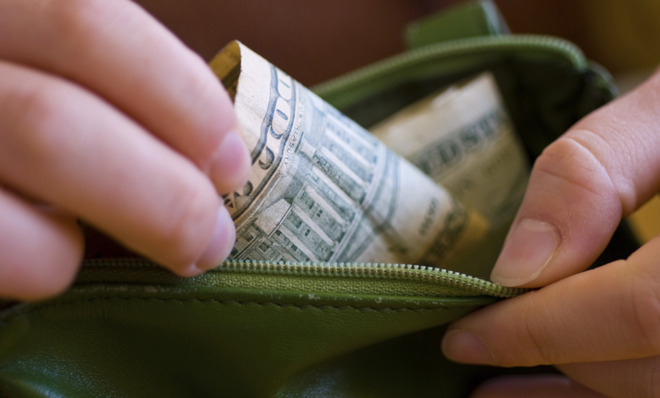Personal finance tips: How to stick to a budget, and more
Three top pieces of financial advice — from the best time to book flights to prioritizing student loans

A free daily email with the biggest news stories of the day – and the best features from TheWeek.com
You are now subscribed
Your newsletter sign-up was successful
The best time to book flights
When it comes to booking a flight, timing is everything, says the Associated Press. Airfares today "fluctuate so frequently" that many vacationers simply don't know if they're getting a good deal or not. Luckily, travel site CheapAir.com has crunched the numbers, and according to its data, 54 days in advance is generally the ideal time to book domestic flights. But other factors can change the equation. For instance, "airfares to popular destinations tend to go up sooner," which is why the website recommends a "prime booking window" of 29 to 104 days before departure. For holidays such as Thanksgiving and Christmas, five or six months out is a good rule of thumb. But when it comes to bargain international rates, "forget about it."
Prioritizing student loans
The Week
Escape your echo chamber. Get the facts behind the news, plus analysis from multiple perspectives.

Sign up for The Week's Free Newsletters
From our morning news briefing to a weekly Good News Newsletter, get the best of The Week delivered directly to your inbox.
From our morning news briefing to a weekly Good News Newsletter, get the best of The Week delivered directly to your inbox.
Put the student loan bill aside, says Gerri Detweiler at Credit.com. While many college graduates "may think it wise to do everything you can to pay off your student debt as fast as possible," paying down debt faster isn't always "the smartest move." As long as you maintain timely payments, student loans "will likely be a plus" for your credit score. So before "throwing all your available funds" at your loans, start building an emergency fund. That will help you "in a pinch" and also ensure that "you'll be able to make the minimum payments on your debts and maintain a good credit rating no matter what life throws your way." And if your employer matches retirement contributions, make sure to use your available cash to max out your 401(k).
How to stick to a budget
There are some tricks to staying on a budget, says Sabah Karimi at U.S. News. While keeping your spending in line can be challenging, you can "adopt habits that will make you more mindful about your spending choices and shopping routine." The first tip is to "always shop with a list," which will help you prioritize purchases and alert you to unnecessary expenditures. Next, keep a daily log of everything you buy, which will help you keep track of your spending habits. And whenever possible, keep your debit or credit card in your wallet. "Shopping with cash can make it easier to manage your budget and be more mindful about how much you spend." By only spending "dollars you can see," you're more likely to become "more cognizant about your purchases."
A free daily email with the biggest news stories of the day – and the best features from TheWeek.com
Sergio Hernandez is business editor of The Week's print edition. He has previously worked for The Daily, ProPublica, the Village Voice, and Gawker.
-
 The environmental cost of GLP-1s
The environmental cost of GLP-1sThe explainer Producing the drugs is a dirty process
-
 Nuuk becomes ground zero for Greenland’s diplomatic straits
Nuuk becomes ground zero for Greenland’s diplomatic straitsIN THE SPOTLIGHT A flurry of new consular activity in Nuuk shows how important Greenland has become to Europeans’ anxiety about American imperialism
-
 ‘This is something that happens all too often’
‘This is something that happens all too often’Instant Opinion Opinion, comment and editorials of the day